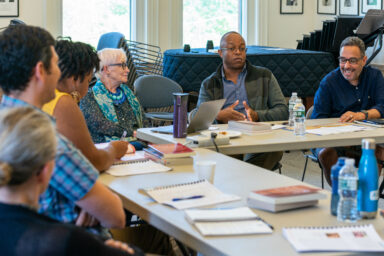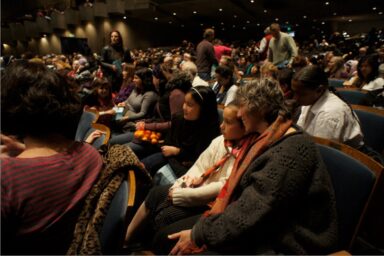Definitions and Common Usage
Embarking on our exploration of the arts and well-being, we researched formal definitions and common usage of several overlapping terms used in this larger field of inquiry: well-being, quality of life, and standard of living.
We found that there is a good deal of ambiguity around the meanings of these terms. This lack of conceptual clarity has been called out repeatedly over the past 50 years. While we felt that the details of this debate were too esoteric to address in our feature article (which is intended for a broad audience of generalists), we want to make this information and our current understanding of the terms available to our dedicated Createquity Insider readers.
While antecedents of the social indicators movement can be traced back to the 1920s and 30s, efforts to measure how well people are doing really took off in the 1960s. Part of the ambiguity surrounding the concepts and terminology used to describe the objects of study results from the fact that researchers in several different fields—as varied as public health, economics, and psychology—took an interest in measuring well-being around the same time and without much exchange with their colleagues in other disciplines.
As early as 1973, researchers criticized the lack of conceptual clarity around the terms. David M. Smith argued that “wellbeing” should exclusively be used in reference to objective measures of a population’s living conditions, whereas “quality of life”—which to Smith held more evaluative connotations—should be used in reference to people’s self-reported, subjective assessments of their lives.




